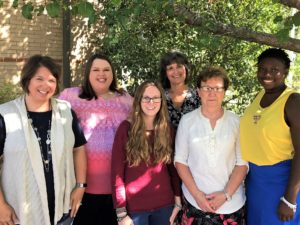Florence, South Carolina

Center of Excellence (COE) Summer Institute 2017
The 2-day COE Summer Institute, Challenges and Opportunities: Teaching Children of Poverty, provided participants with practical, research-based information on the needs and abilities of under-resourced learners. Four keynote addresses and many breakout sessions focused on classroom strategies and best practices for teaching under-resourced students. The sessions included some by school ATPs that earned small grants from COE for improving family and community engagement.
The Summer Institute addressed COE’s mission “to increase the achievement of children of poverty by improving the quality of undergraduate and graduate teacher preparation and professional development of in-service teachers.” Over 500 attendees attended the professional learning conference, including college students, education faculty from several colleges and universities, teachers in training, practicing teachers and administrators, and others. The Summer Institute aims to equip teachers with the knowledge and skills to work with parents, health and human service providers, and other community resources to meet the social, emotional, and physical needs of children of poverty, and serve as advocates for them in the school, community, and state.
A Successful Transition
It was important to have a smooth transition when the former associate director of COE and Key Contact to NNPS retired, and a new COE assistant director and leader for partnerships was hired. The Center’s director guided the transition strategically. The retiring, successful leader for partnerships created a list of tasks and responsibilities, and organized and saved paper and electronic files. All files, manuals and materials, contacts, and other resources were forwarded to the new assistant director to ensure a seamless transition. COE is working with many district leaders and school-based Action Teams for Partnerships to improve their programs of family and community engagement. Many of them are active members of NNPS. COE wanted to maintain good communications, helpful services, and annual events with these partners.
The new leader for partnerships attended classes at the University taught by the COE director. One of these on Family and Community Partnerships highlighted the Framework of Six Types of Involvement. She also attended the spring NNPS Leadership Institute in Baltimore to learn effective leadership strategies and plan her own agenda for continuing to improve COE’s programs and services to districts and schools in South Carolina. An End-of-Year Celebration at COE served as a meet-and-greet for the new assistant director and enabled the districts and schools to share and celebrate their work on family and community engagement. The transition has been smooth and successful, and the new assistant director has a Leadership Plan for Partnerships to carry on the long tradition of good work at COE.

